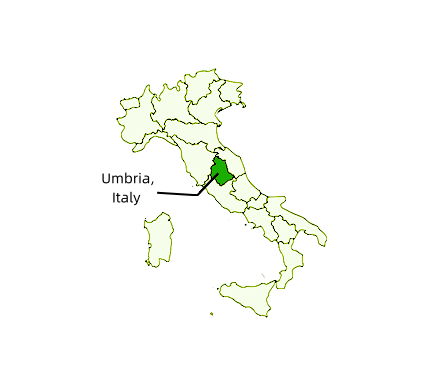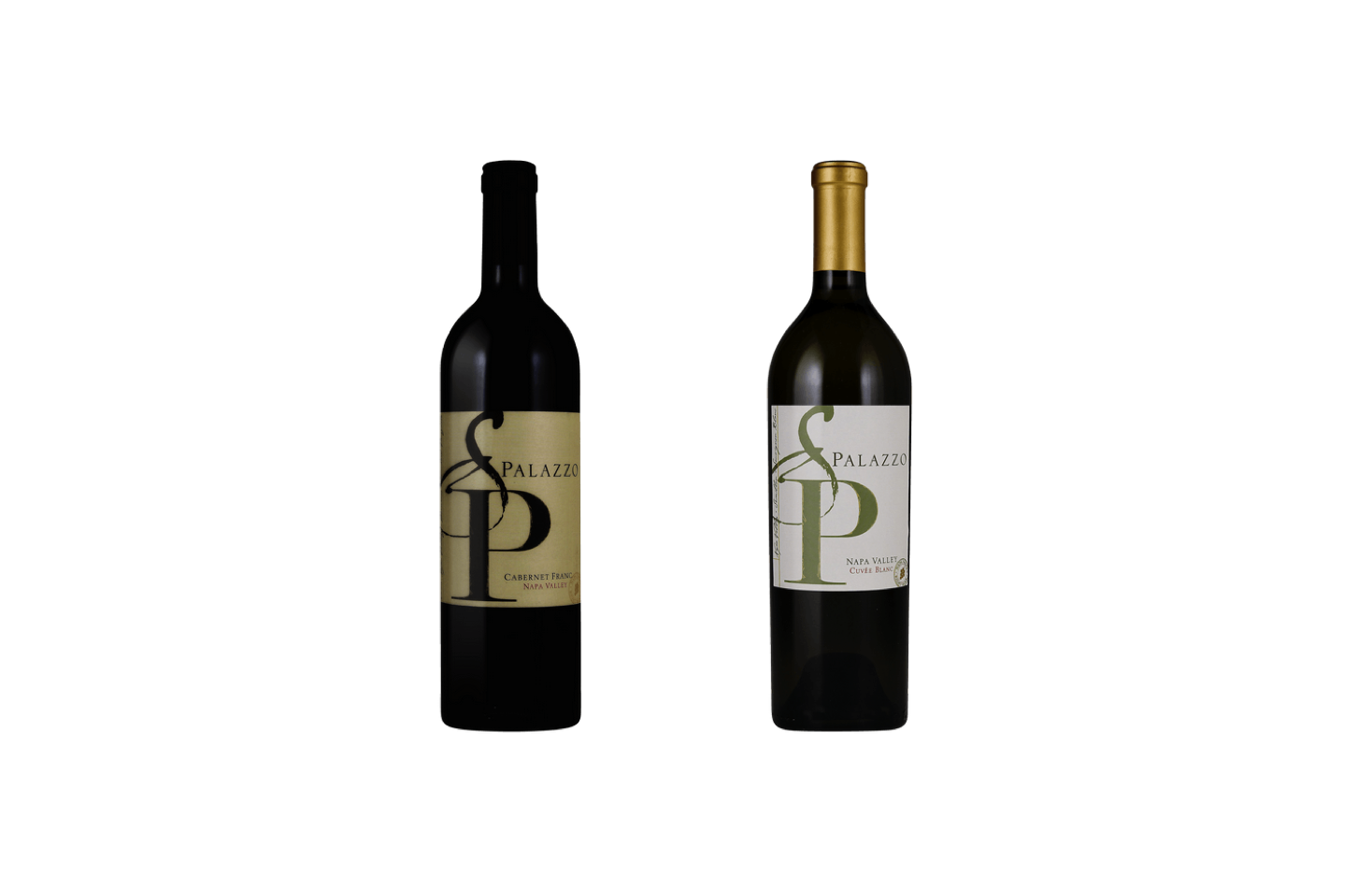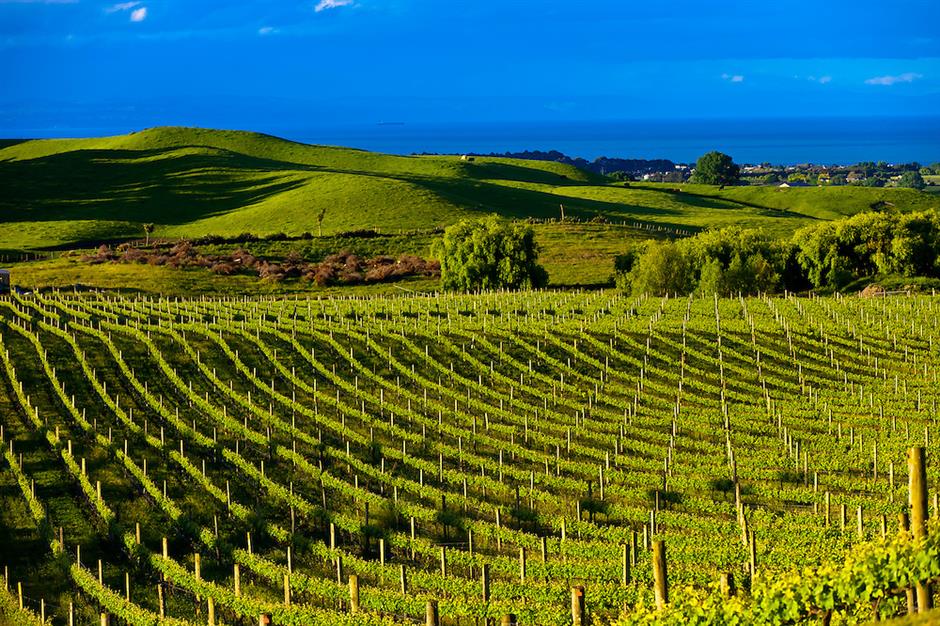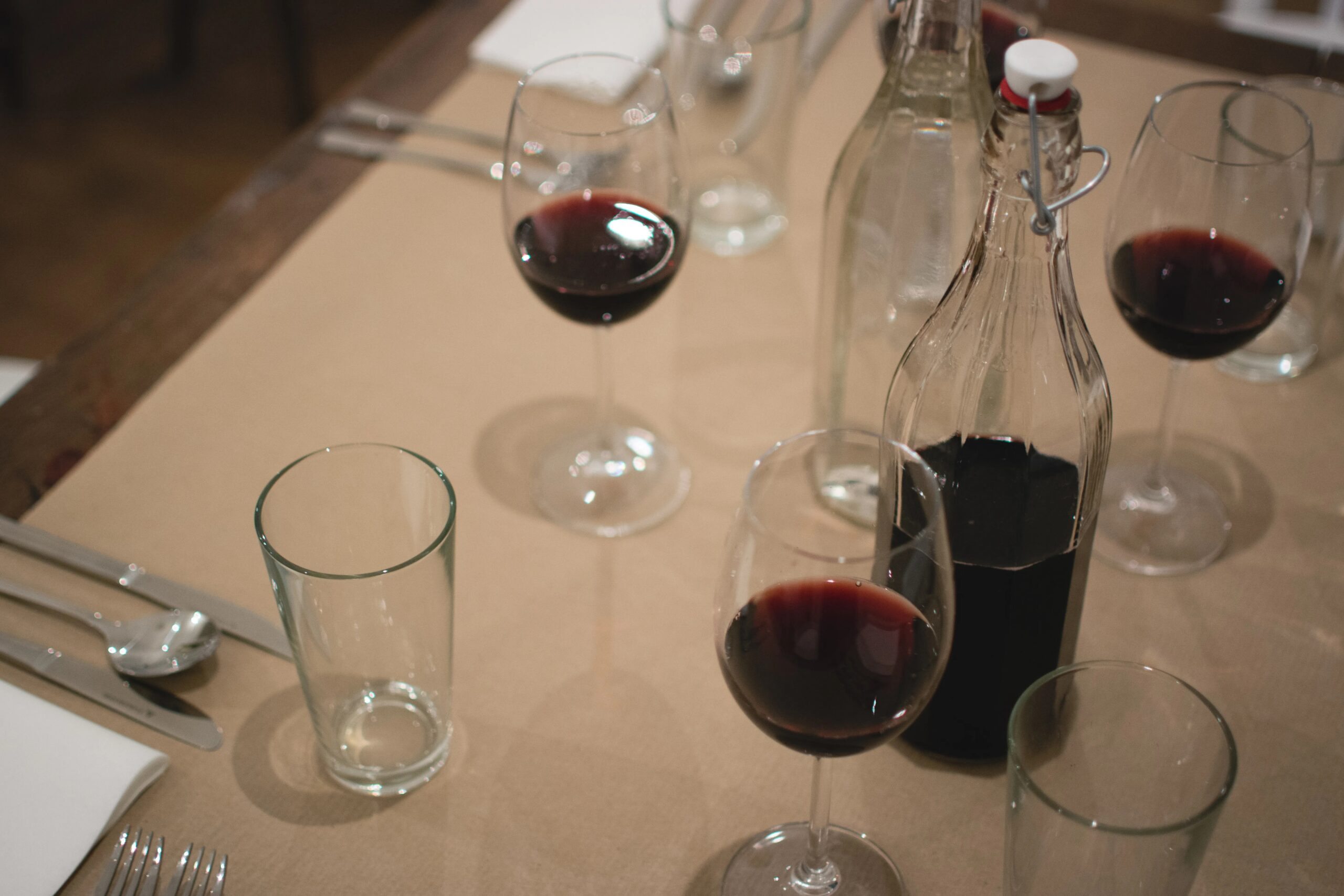In the center of Italy situated between Emilia Romagna, Tuscany, and Lazio, the pastoral rolling hills of Umbria quietly offer some of the greatest gourmet treats of Italy. Since the pre-Roman times when the ancient Etruscan civilization settled in modern-day Umbria, this region has been one of the great food and wine centers of Europe. The Etruscans are often referred to as the original gourmets of Italy who would gather in large groups and feast on local delights for days without stop. In fact, some historian cite an overindulgence in food and wine as a contributing factor in the premature downfall of this great ancient culture. Today the region is famous for its black truffles, superb olive oil, cheese, pork products, chocolate and not surprisingly wines.

The best known wine of Umbria is the white wine Orvieto, a simple yet charming wine very often misunderstood and underappreciated in Asia. This white wine is made with the Trebbiano, Grechetto, Drupeggio and other Italian white grapes cultivated on the hills surrounding the hilltop village of Orvieto and adjacent towns. Though sweet, semi-sweet and even red Orvieto wines are also made, the most famous wine from this area is a light to medium body, dry white wine. Orvieto whites typically feature a straw-yellow color, enticing fruity and floral aromas and crisp peachy flavors. While not considered a serious or great wine, a good Orvieto white wine is an extremely pleasing and food-friendly wine.
The fresh, clean nature of Orvieto white wines make them natural companions to many Chinese seafood dishes including shredded jelly fish, Shanghai style chilled crispy carp and deep-fried squid. Many pork and chicken dishes also pair well with these wines. Before a meal, Orvieto whites make an ideal aperitif as they won’t fill you and the good acidity of the wine is sure to stimulate your appetite.
In Shanghai or anywhere in Asia, I suggest choosing an Orvieto Classico instead of a standard Orvieto. The classico wines come from the most select vineyards near the town of Orvieto and tend to have more concentration and structure. This is important because the basic Orvieto, while charming when enjoyed in Umbria, does not travel as well as the weightier classico. All Orvieto wines should be consumed young while their aromas and fruity flavors are still fresh. These wines don’t age well.
Several well-known Tuscan producers make Orvieto Classico wines from their own or cooperating vineyards in Umbria. These producers include Ruffino, Antinori and Carpineto and their wines are easy to find in Shanghai. Harder to find, but worth the search, are Orvieto Classico wines from small Umbrian producers like Barberiani and Conte Vaselli.





